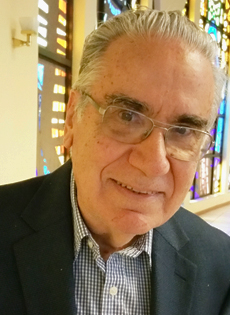
The Church and capitalism
Monday, December 5, 2016
*Antonio Fernandez
There was much discussion among Cubans recently about certain words spoken by Havana’s newly appointed prelate, Archbishop Juan de la Caridad García Rodríguez. Some have “rent their garments,” alarmed by the position of the new leader of the Havana archdiocese.
All I have found are his alleged words, broadcast outside the context of his speech. Therefore, I limit myself to copying what has come through the sieve of the local press: “García explained that he does not want ‘capitalism or anything like that, but that socialism would progress’ so as to ‘move forward in a society that is fair, balanced and fraternal.’”
Saying that he does not want to have unbridled capitalism, as understood and practiced in many of the so-called free societies today, is nothing new or different from what the Catholic Church has taught for many years.
I also do not see any problem with saying that one favors progress in what is understood as socialism according to the Social Doctrine of the Church. Archbishop García could not be talking about anything other than what the Church officially teaches about socialism or capitalism.
In the encyclical Centesimus Annus, Pope John Paul II said: “If by ‘capitalism’ is meant an economic system which recognizes the fundamental and positive role of business, the market, private property and the resulting responsibility for the means of production, as well as free human creativity in the economic sector, then the answer is certainly in the affirmative, even though it would perhaps be more appropriate to speak of a ‘business economy,’ ‘market economy’ or simply ‘free economy’…"
Then the Holy Father adds: “But if by ‘capitalism’ is meant a system in which freedom in the economic sector is not circumscribed within a strong juridical framework which places it at the service of human freedom in its totality, and which sees it as a particular aspect of that freedom, the core of which is ethical and religious, then the reply is certainly negative.”
The Vicar of Christ warns that for this reason, “it is right to speak of a struggle against an economic system, if the latter is understood as a method of upholding the absolute predominance of capital, the possession of the means of production and of the land, in contrast to the free and personal nature of human work. In the struggle against such a system, what is being proposed as an alternative is not the socialist system, which in fact turns out to be State capitalism, but rather a society of free work, of enterprise and of participation. Such a society is not directed against the market, but demands that the market be appropriately controlled by the forces of society and by the State, so as to guarantee that the basic needs of the whole of society are satisfied.”
Some of the documents, words and speeches of Pope Francis adhere to this same line of thinking – and he has also been accused of being a leftist for reminding us about things that had been stated many decades ago by other pontiffs on matters of social doctrine.
At this point, although I know that nothing will change the minds of those who defend a rigid capitalist doctrine, I want to add a few words from Venerable Pope Pius XII – the same one who spoke to us about communism as an "intrinsically perverse” doctrine.
He said: “…at the same time it is the duty of all to realize that the world crisis is so serious today and so menacing for the future that it is imperative for all, especially the rich, to place the common welfare above their private advantage and profits. But … the first and most urgent need is to reconcile the hearts of men, to bring them to fraternal agreement and cooperation.” (Optatissima pax, December 18, 1947)

